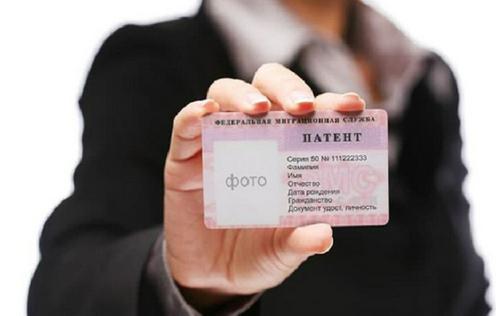Between January and May of this year, Russia’s federal budget received 63 billion rubles (approximately $804.5 million) in personal income tax (PIT) revenue from the sale of work permits (patents) to migrant laborers, according to Valentina Kazakova, head of the Main Directorate for Migration Affairs at the Ministry of Internal Affairs (MVD). She shared this data at the St. Petersburg International Economic Forum, Interfax reported.
According to the MVD, this figure marks a 35% increase over the amount collected during the same period in 2024.
Kazakova emphasized that the PIT collected through these work authorization documents represents a substantial contribution to state finances. Last year, migrant workers contributed 124 billion rubles (about $1.6 billion) to the federal budget.
“This is the amount received by the Russian regions from the advance payments foreign nationals make monthly to obtain a patent,” she explained.
The MVD estimates that about 3 million foreign nationals are currently working in Russia. Among them, 800,000 are employed in construction, 350,000 in wholesale and retail trade and manufacturing, 193,000 in transportation and storage, and 63,000 in agriculture.
Kazakova also noted that 6.3 million foreigners entered Russia last year—a number comparable to pre-pandemic levels. Half of these arrivals listed “work” as the purpose of their visit. Approximately 700,000 were found to be in the country illegally, and 157,000 were deported.
The majority of labor migrants in 2024 came from Central Asian countries: 23.3% from Uzbekistan, 16.7% from Tajikistan, and 10.4% from Kyrgyzstan.
On February 5, Russia launched a registry of “monitored individuals”—foreign nationals who violated immigration laws. Being placed on the list can restrict a person’s ability to change their place of residence, marry, or purchase property or vehicles. The system is hosted on the MVD website and the state services portal, where the list is accessible free of charge via an interactive form.
According to Kazakova, nearly 800,000 migrant offenders are now listed. Back in February, the MVD reported around 670,000 such individuals.
Interior Minister Vladimir Kolokoltsev recently proposed that migrants who do not contribute to society be expelled from the country.
“Those who have lost their jobs, been expelled from universities, failed fingerprinting, are not learning the language, or are otherwise of no benefit to Russian society must leave our country,” the minister stated.
He added that the MVD has a “formula” for addressing any attempts to stir unrest involving migrants: first, by systematically preventing crime among foreign nationals, and second, by publicly and constructively highlighting the consequences of violations—underscoring the inevitability of punishment.










